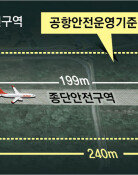The United States of Shame
In camps set up on the outskirts of New Orleans for Hurricane Katrina victims, no trace of the civilized nation known as America was to be found.
At 1:40 a.m. on September 3, 2000 residents, most of whom were African Americans, were sleeping on a 10-lane highway with garbage piles strewn in between them. The smell from litter and leftover food aid was stinking to the point where it reminded one of rice wine that went bad.
Most residents were trying to get some sleep on rollaway beds, paper boxes or chests on the asphalt road. It was impossible to get a good sleep because of the many lights lighting the pitch- dark night and the loud noise from a generator.
At 3:00 a.m., some sleepless residents started to talk to this journalist from Korea, a total stranger to them, and brought up a conspiracy theory. They said, It was not the hurricane that collapsed the dyke. The whites exploded it deliberately.
One African American man said, Two of my friends heard an explosion that you hear when dynamite is set off. Adding a word for him, his girlfriend, Tina Hestern (43, cook) said, I am sick of all this. I will leave New Orleans. But there should be an investigation by all means.
However, nobody could answer properly, when asked what the grounds for that reasoning were.
At 3:45 a.m., more than two hours into my walk around the region, looking at bits of litter that were kicked by my feet, a question came to mind, Why have they not been cleaned up? Already five days have passed. Was it because of the everyday lifestyle of African Americans? Or was it because of indifference of white officials in charge of managing the refugee camp? If a scene of streets littered with garbage is aired on TV, the prejudice against African Americans might come alive.
Myra, with three children, said, We asked for some brooms, but they dont even give us brooms. She said, They dont give a damn bit about our self-respect as human beings, standing with their hands clasped behind their backs. An African American man said, Were going to leave soon anyway. Why bother to clean up?
At 5:00 a.m., 12 buses for emergency camp use arrived, around four hours later than scheduled. Assuming a bus can accommodate 40 people, about 500 people were able to have shelter.
Residents rushed to the fronts of the buses. Probably because of listlessness, there were fewer scuffles than expected. However, there were no rules whatsoever with regard to who would get on the bus first according to what criteria. Nor were there people to inform residents in which direction to move. Scott Cocos, a police officer looked embarrassed when he said, Well I am not quite sure. An African American woman shouted out, Everything the authorities do is wrong.
At 6:00 a.m., from a distance, the day broke as always. However, no hope could be read from the dawn at the refugee camp.
Maureen Dowd, a New York Times columnist, described America as The United States of Shame in the newspapers September 3 issue.
Two images were overlapping in my mind: roadside refugee camps where Hurricane Katrinas victims became rubbish themselves and scattered around, and a disastrous scene of The City of Jazz, where the sad trumpet sound of Louis Armstrong is not heard any more.
srkim@donga.com






